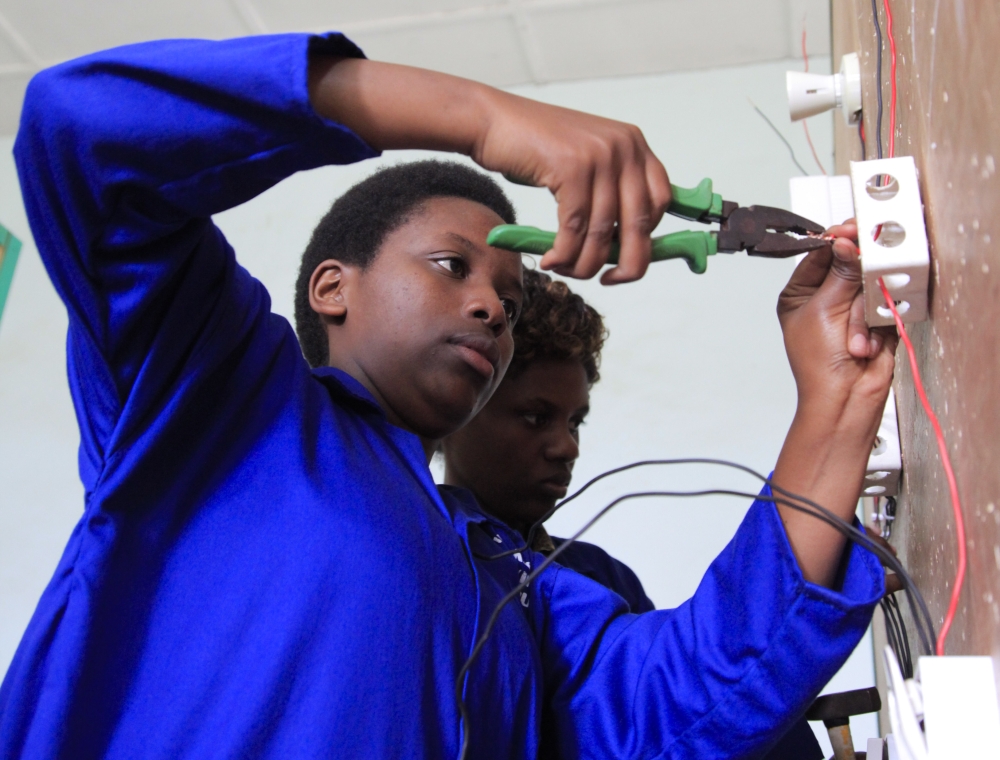

The Cabinet, on October 18, approved a draft law approving ratification of the financing agreement between Rwanda and the International Development Association (IDA), relating to the credit for Priority Skills for Growth and Youth Empowerment Program (PSGYE), which was signed in Kigali, Rwanda, on September 12.
IDA is the part of the World Bank Group that offers development assistance aimed to reduce poverty by providing zero to low-interest loans (called "credits”) and grants for programmes that boost economic growth, reduce inequalities, and improve people’s living conditions.
ALSO READ: World Bank approves $200mn for skills development in Rwanda
Information from the World Bank about Priority Skills for Growth and Youth Empowerment Program, shows that the IDA credit for the programme is $200 million (approx. Rwf270 billion), and its expected approval date was September 9, 2024, while the expected closing date is June 30, 2029.
The programme’s objective is to improve employability for target beneficiaries and strengthen institutional capacity for enhanced service delivery in skills development.
The programme is in line with the National Skills Development and Employment Promotion Strategy (NSDEPS) covering the period 2019-2028, which is the key strategic government programme to meet the human capital needs for economic growth.
NSDEPS focuses on those already in the labour market and new entrants, and students enrolled in Technical and Vocational Education and Training (TVET) and higher education.
Consistent with the broader objectives of the NSDEP, PSGYE aims at improving the employability of target youths, enhancing the quality and relevance of TVET and degree training programmes, and strengthening the institutional capacity for enhanced service delivery in skills development.
According to the World Bank, a mid-term review of the NSDEPS conducted in December 2022, highlighted its interventions that laid the foundations for improvements in tertiary education, training opportunities for short-term market-driven courses, and evidence base workforce planning.
NSDEPS, which was initially set to conclude in 2024, was extended to the financial year 2027/2028.
Beneficiaries
The programme is expected to directly benefit thousands of people over its four years of implementation.
They include 100,000 beneficiaries under the Skills Development Fund (SDF) window (at least 40 per cent females), the World Bank indicated.
About 20,000 students will benefit through training in TVET and degree programmes and the laptop scheme, while about 2,000 additional students will be provided with access to campus hostels (at least 58 per cent females).
An additional 170 existing staff in TVET institutions and UR will benefit from continuous professional development and industrial attachment programmes, while various SMEs will benefit from improved productivity, the World Bank observed.
Although there is gender parity for boys and girls at primary level, girls are less likely to continue their education through upper secondary and tertiary education, according to the World Bank.
While the Gender Parity Index (GPI) – the ratio of girls to boys enrolled at primary education levels - is 1.01 for primary school, meaning a slightly higher girls’ enrol than boys’, secondary school attendance drops drastically to 37 per cent for girls, and there is limited advancement for girls to tertiary education.
Girls comprise 38 per cent of the student body in tertiary education and are under-represented in Science, technology, engineering, and mathematics (STEM) fields in both TVET and at the University level, the World Bank observed, adding that this structural barrier is detrimental to young women’s opportunities to acquire higher-level skills and higher paid employment.
To bridge these gaps, the programme will facilitate the development of a policy or guidelines that can contribute to an increase of the pipeline of girls interested in STEM at the secondary education level.
It will also support female role models (students and faculty) in target TVET and UR institutions to undertake regular school visits to drive interest and confidence of girls to engage in STEM; improve access of young females, particularly from the rural areas, to tertiary education through provision of accessible, safe and affordable students gender segregated hostels, as well as access to students loan.
UR and RP will also update the Policy on Gender Based Violence (GBV) and develop mechanisms for student support, including referral systems.
Staff training under the Program will also include sensitization on GBV and gender inclusiveness especially in male-dominated training fields.
The Sector Skills Councils (SSCs) and staff development programmes will promote greater female participation in the TVET sector and will require at least 30 percent of the SSC secretariat members and staff recruited and trained under the programme to be females.
Increasing opportunities for youths
Under the programme, support will be provided under this results area to scale up the operations of the Skills Development Fund (SDF) and other relevant trainings, for example by authorised private companies to address skills gaps and market inefficiencies in training and easing the entry of vulnerable and unemployed youths into the labour market.
NEET stands for not in employment, education or training.
This results area will expand suitable pathways for skills acquisition and upgrading under SDF windows and other authorised training institutions, including private companies in alignment with selected priority economic sectors, specific needs of the different target groups of youths, and the need for climate change adaptation and mitigation.
Under the window on short-term upskilling of existing workforce and potential employees of investors investing in new investments,
SDF will co-finance short-term training for upskilling of existing workers in small and medium enterprises (SMEs) to improve their productivity and relevance, and rapid training for prospective employees of new investors under RDB looking for specific skill sets.
Short-term training in efficiency technologies such as solar installation and maintenance, and waste recycling are included under this window.
In addition, the window will also support formal apprenticeship (mainly in the construction sector) for up to 18 months (75 per cent on-the-job training; 25 per cent institution-based).
Meanwhile, the programme has other result areas, namely improving the quality and market relevance of target TVET and degree programmes for the workforce, and strengthening governance of the overall skills development system.


